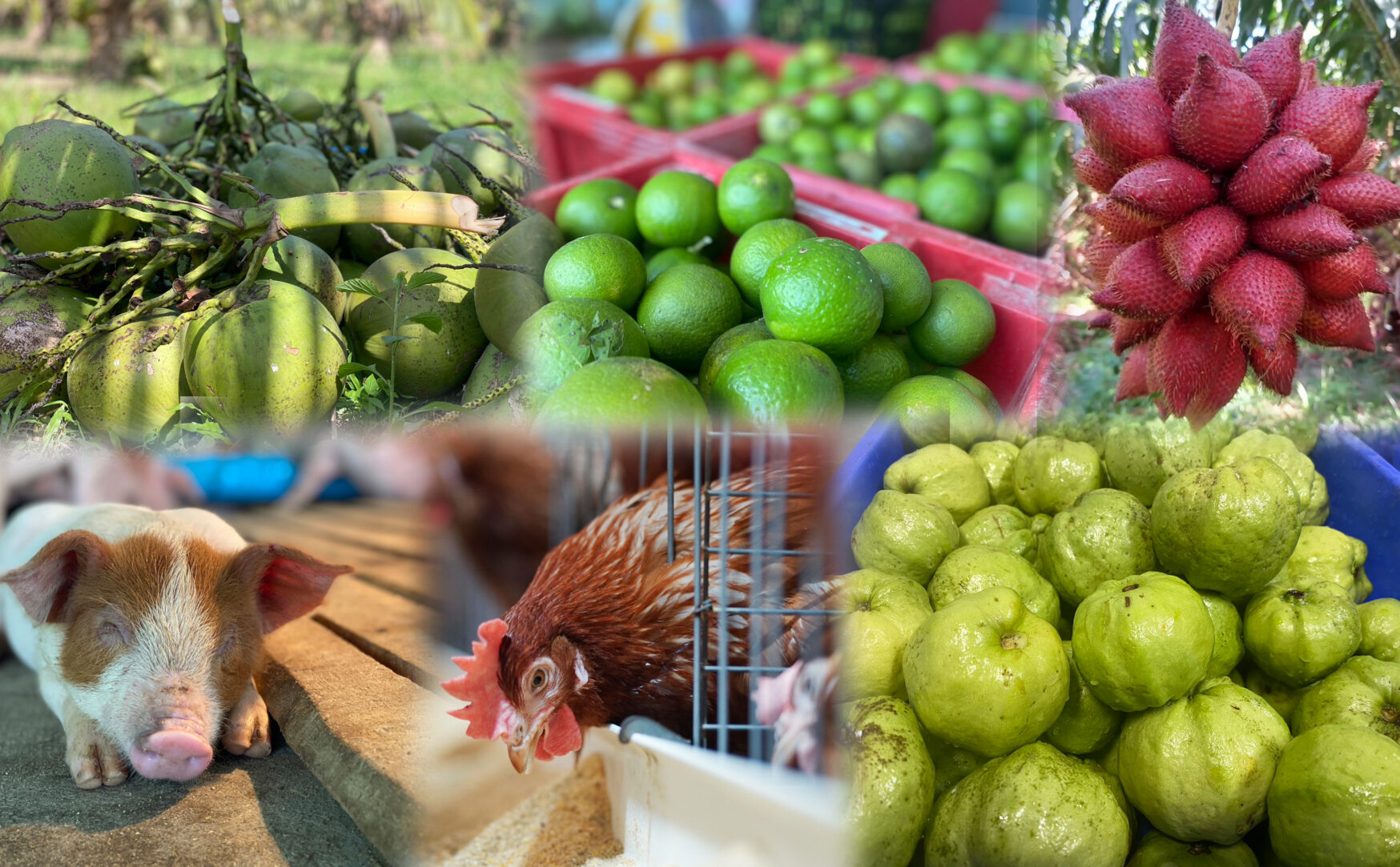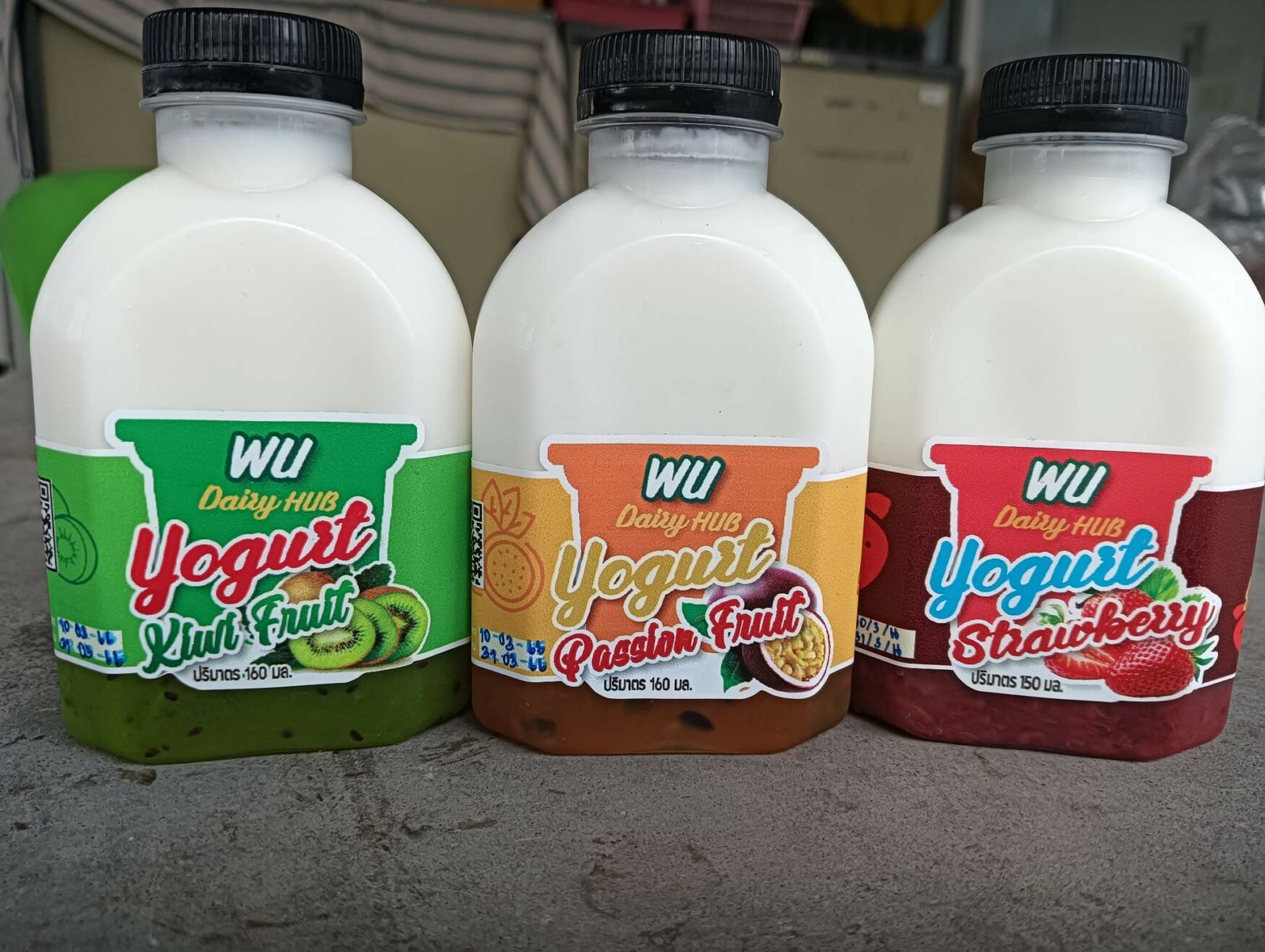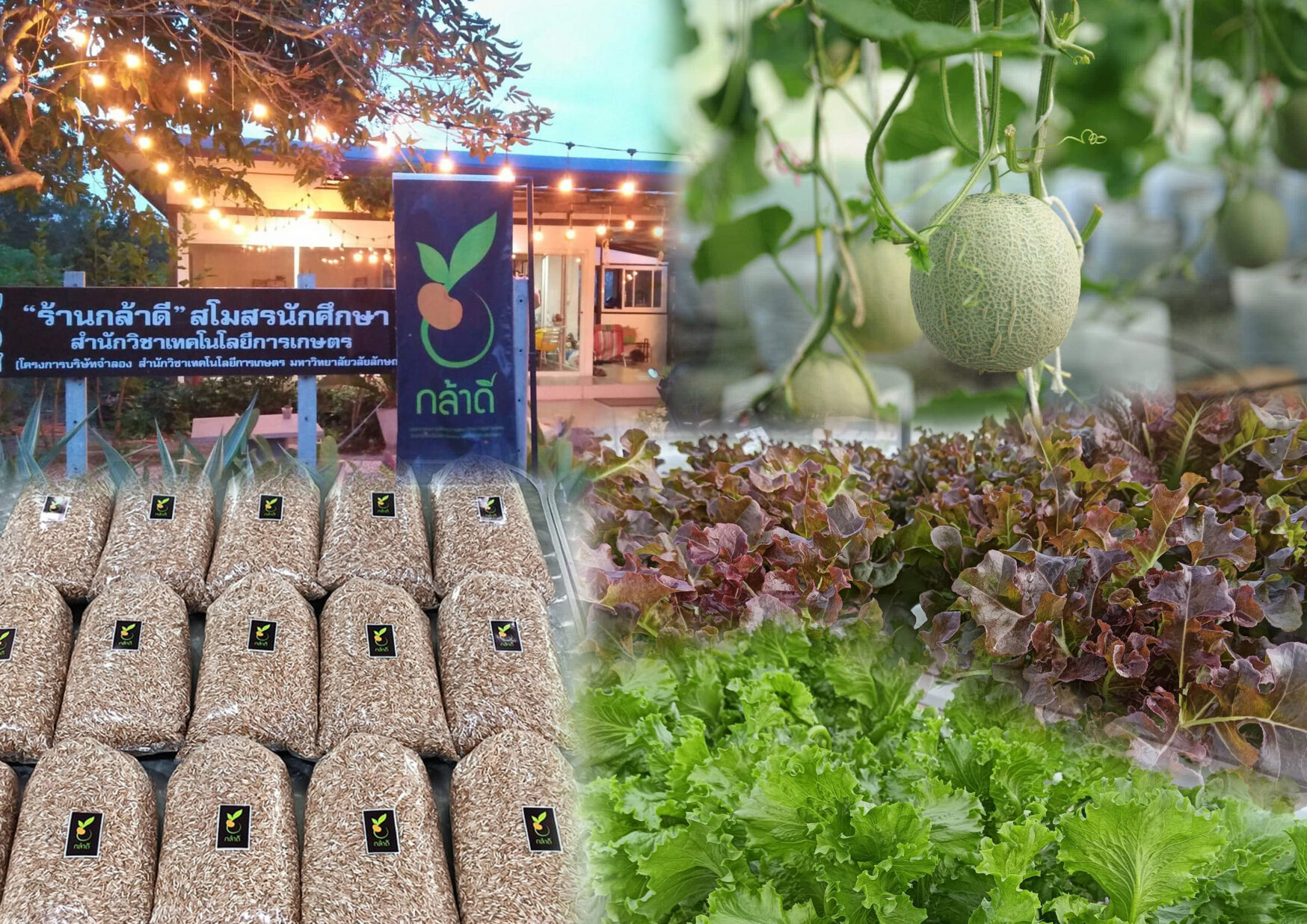Walailak University’s Initiatives in Sustainable Agriculture and Food Security According to Its Policy
Walailak University adheres to a policy on ethical selection of food sources and supplies to ensure the safety of the university’s population, including students and staff. In 2022, Walailak University supported a policy with a sustainable food system, which promotes food security and nutritional well-being for everyone, taking into consideration economic, social, and environmental dimensions. It’s an economically sustainable system with affordable prices, accessible to consumers, and provides broad societal benefits (societal sustainability), leading to good health for consumers.
At present, the university has established in-house food production sources and continuously developed it with technological processes and innovations to produce and supply safe food for the university community, including:
- The Center for Smart Farm
Since the university is aware of the development of sustainable agriculture and the production of safe food, it has utilized technology and global-level knowledge to promote and develop the entire production system, including crop cultivation and animal farming. This aims to enhance the quality of production, reduce costs, and create added value for products. Also, it is a sustainable career promotion for farmers that leads to an improved quality of life. This aligns with the university’s vision of being a learning center and a local cornerstone, of which the university is proud, for contributing to the sustainable development of the agricultural sector. Additionally, this initiative serves as a learning and experiential platform for students, farmers, and anyone interested.
In 2022, the Center for Smart Farm utilized an area of over 4,000,000 square meters to operate in two main areas: fruit cultivation and animal husbandry. These operations made use of modern information technology and state-of-the-art agricultural tools. Fruit cultivation includes Salak Sumalee, aromatic coconut, guava, jackfruit, Lime, Rose Apple Tubtimchan. The aforementioned products are distributed to the university community. Additionally, there are activities related to animal husbandry, including the ‘Green Farm’ project, which involves breeding piglets and egg-laying hens in an automated closed-system (EVAP) under international standards. It is an environmentally friendly, community-friendly farm that complies with green farm standards. This farm produces and sells eggs and serves as a learning and skills development center for students in animal husbandry, using state-of-the-art technology. It is a place for experimental study and research in agricultural technology for students and faculty members. Furthermore, it contributes to academic services.
The Smart Farm Center has developed distribution channels for agricultural products, including both crops and livestock, that are reasonably priced, safe, and free from chemical residues. These products are distributed through both online and offline markets, with key customers being students, university staff, and local community members.

- The Royal Initiative Discovery and Agriculture Innovation Development Center (Kla Dee Store)
School of Agricultural Technology and food Industry Walailak University operates the Royal Initiative Discovery and Agriculture Innovation Development Center, known as “Ran Kla Dee.” The center’s main objectives are to translate His Majesty King Rama IX’s royal guidance into tangible and sustainable practices and to adopt innovations or semi-innovations in the agricultural sector aligned with the national framework and direction of Thailand 4.0. The focus is on organic agriculture practices, appropriate post-harvest management, processing of agricultural products, and distributing these products to generate income in a quantity and timeframe suitable for the community. Furthermore, this involves the collaboration of interested farmers to market agricultural products. Currently, the innovation development area at the center covers approximately 16,000 square meters, divided into four sectors as follows:
2.1. Plant: there is organic vegetable cultivation, vegetable cultivation in greenhouse, innovation of vertical plant production using planting materials derived from the research of the School of Agricultural Technology and food Industry, Innovation of low-water rice farming, organic fruit tree cultivation, herbs, passion fruit, grapes, melons, oil palms, and plant seed development and production.


2.2. Animal Husbandry: it involves raising economic animals by producing organic animal feed. This includes testing animal husbandry with organic feed, such as raising dairy goats, egg-laying ducks, and fish farming.


2.3. Aquaculture: the cultivation of red tilapia in cages is carried out. Testing technology by automatic fish feeding machines controlled by solar energy. Combining with planting crops together with aquaculture (Aquaponics).

2.4. Food Processing: in the area of food processing, the products produced at the Center are transformed for distribution, including items such as tilapia sausages, salted eggs, fresh vegetables, gac fruit ice cream, gac fruit yogurt, cider from fruits, fermented vinegar. Selling products through Kla Dee Store, a student organization representing the School of Agricultural Technology and food Industry.

In 2022, there is the implementation of agricultural activities in the fields of crop production, animal husbandry, aquaculture, and food product processing to support and distribute safe food to both the internal and external communities of the university. They have highlighted agricultural products that are of interest to customers, such as hydroponic vegetables, duck eggs, and melon, among others. Approximately 300 customers purchase these agricultural products every month.

- the Sufficiency Economy Learning Center
Walailak University, in collaboration with Chomchon Mai School, has established the Sufficiency Economy Learning Center on an area of approximately 5,000 square meters. This involves learning activities related to agriculture, including vegetable and fruit cultivation, raising chickens for eggs, ducks, pigs, and tilapia fish. Additionally, it includes growing grey oyster mushroom. These activities provide students and youth in the community with essential knowledge about self-reliance. Moreover, they create income-generating opportunities while studying. The learning center plays a crucial role in educating students about sustainable food sources and promotes a sense of responsibility for taking care of and selling the produce. This knowledge can be expanded to benefit their parents and the local community for household livelihoods and economic activities.
Related link:
- https://farm.wu.ac.th/
- https://act.wu.ac.th/?page_id=12366
- https://www.facebook.com/KasetcenterSAFWU/posts/pfbid02umJTaiKXf6Rb7iR151DCYZnwmMjjPPE7DKTQZPY1EYFRHruy9EoDh6yQbBWJqRFfl
- https://www.facebook.com/KasetcenterSAFWU/posts/pfbid02TiGf6bonjfV4p4WwbnFTZ4u51J5XJ1NvUSaoCnEchuZ6nw4HHtAKNUi57sqWsmPsl
- https://www.facebook.com/RongreiynChumchnHimChumchnSathitWlayLaksnPhathna/posts/pfbid0qk94CUVxru5Epucc6J3u2drAuQsxy67HLYqCUaRzgZPrYDob8D5R9sYp63qFYbbGl


